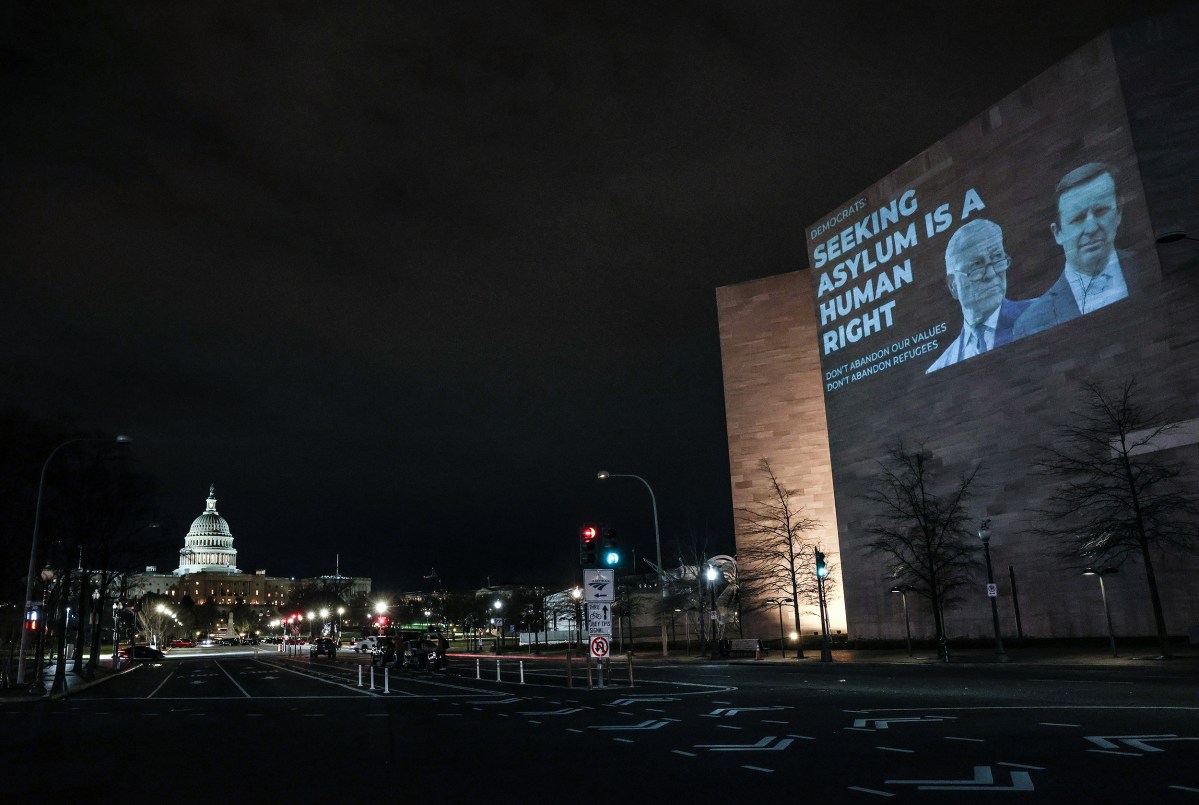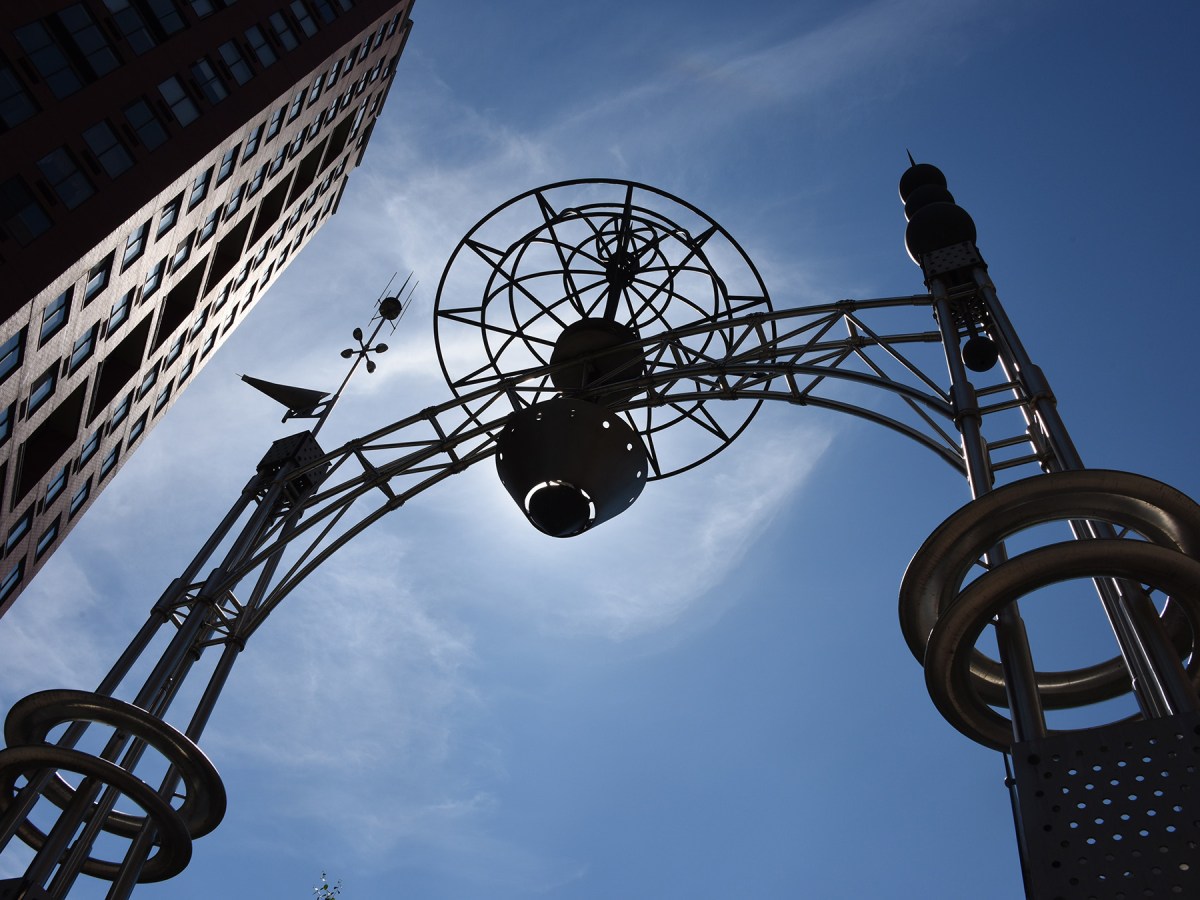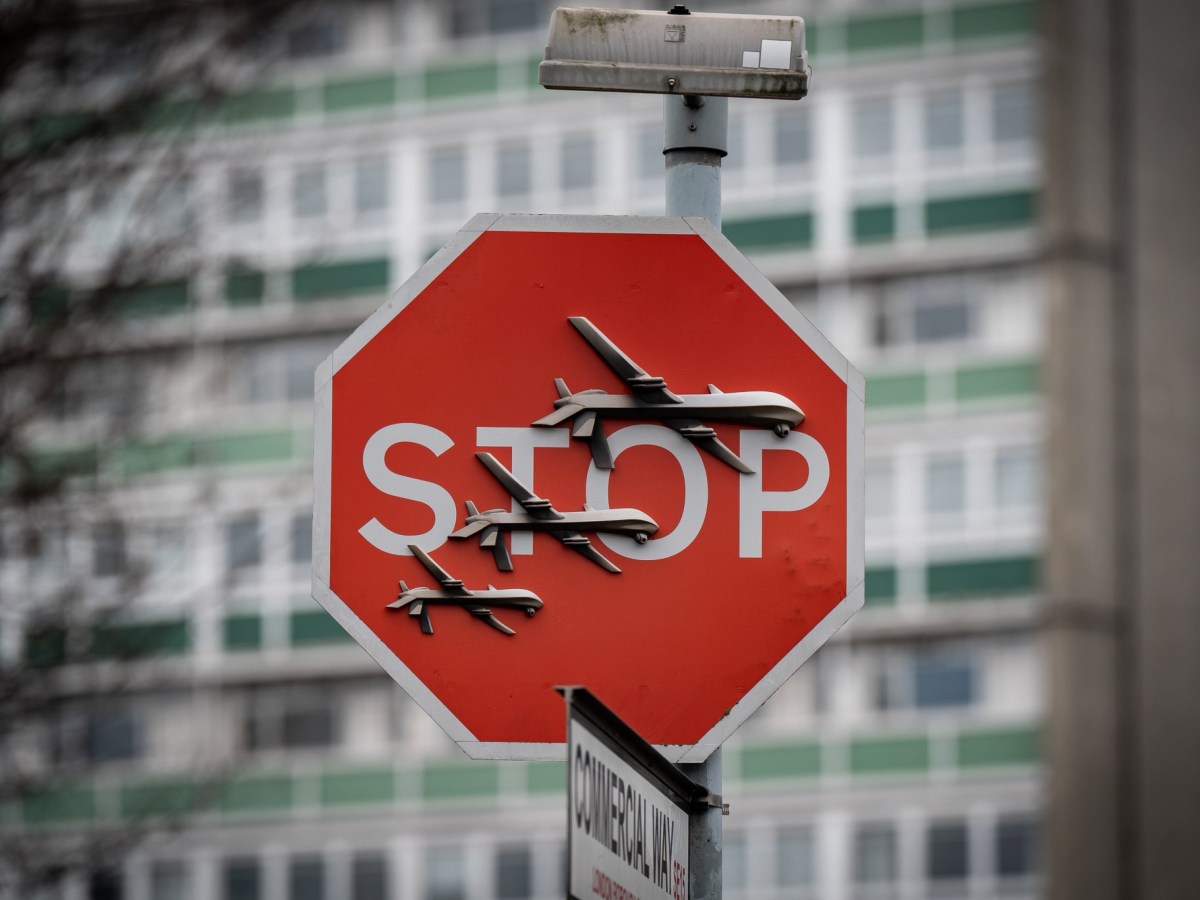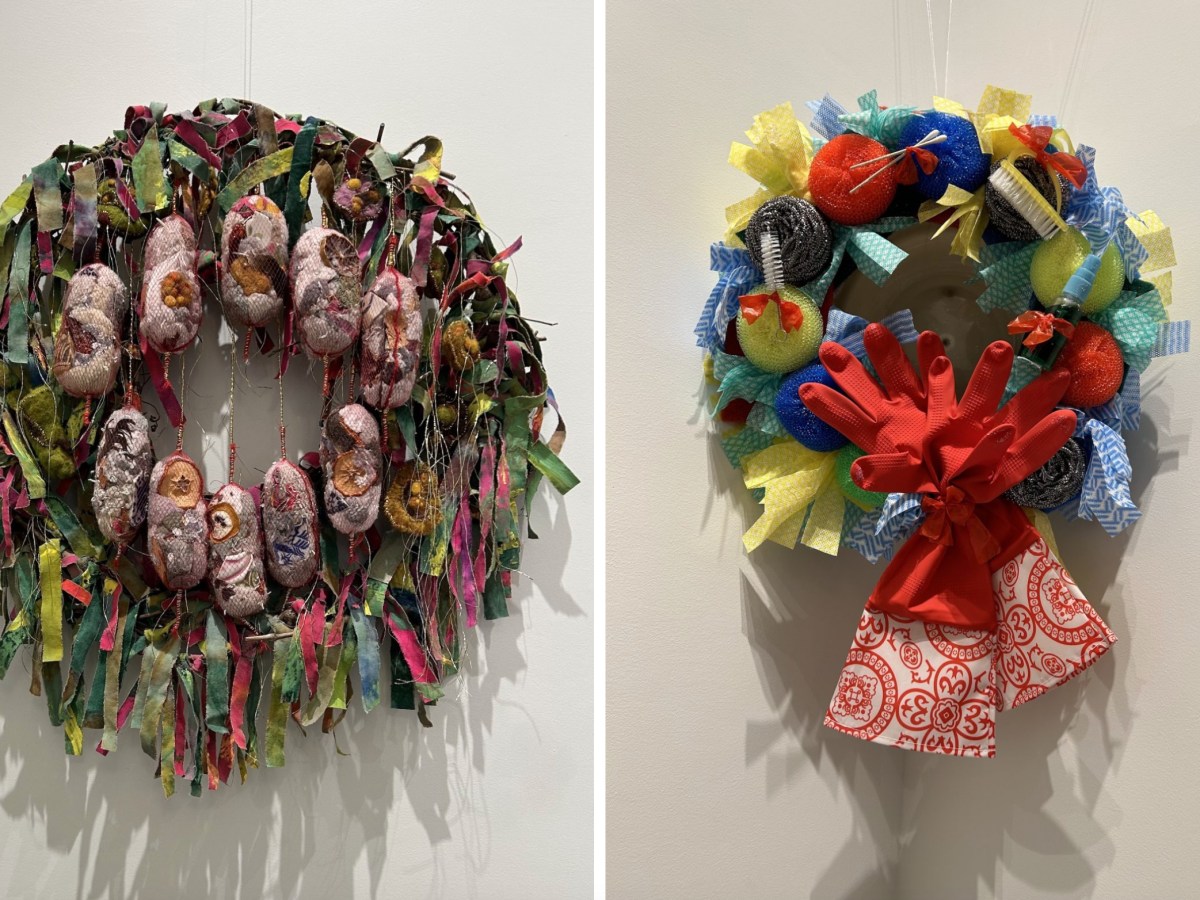‣ If you couldn’t make it to the epic Vermeer retrospective earlier this year at the Rijksmuseum in Amsterdam … well, good news! You can visit it virtually with this 360 view of the show.
‣ Michael Louie of Hellgate writes about Karolina Zaniesienko, who has collected animals and fauna from the very polluted Newtown Creek (which divides the borough of Brooklyn from Queens) and used that to create a diorama of the river in a fish tank in her living room:
She keeps a rotating cast of characters in her tank, like an East River hostel, before eventually returning them to the waters she plucked them from. Over time, she’s learned to be careful about what occupants she allows into her aquatic terrarium. One of her former fish tank residents, a hake she dubbed “Hake Williams, Jr.,” was so aggressive and territorial that she couldn’t introduce a second hake into her tank. But mostly, she keeps what looks interesting. She usually tosses crabs back because “they eat everything I don’t want eaten,” like tunicates, snail eggs, and anemones, though she once kept an invasive European green crab because Redditors told her to kill it rather than put it back in the creek.
There’s a surreptitious element in what she’s doing: While not illegal, it doesn’t feel exactly proper, either. Maybe it’s the weird looks and confusion from bystanders that makes it feel like it should be illegal, but—like the many sailboats tied to the bulkheads on the Greenpoint and Long Island City sides of the Creek despite clear “No Mooring” signs—there’s an unspoken permissiveness that quietly relies on authorities being too busy doing other things.
‣ A Chinese professor used AI to write a sci-fi novel and it won a national competition. South China Morning Post‘s Holly Chik reports:
When a professor at Beijing’s Tsinghua University set out to write a science fiction novel about the metaverse and humanoid robots, he turned to artificial intelligence for inspiration.
The AI ended up generating his entire book – which then took out a national science fiction award honor.
The nearly 6,000-character Chinese-language novel Land of Memories, by Shen Yang, a professor at the university’s school of journalism and communication, was among the winnder of the Jiangsu Youth Popular Science Science Fiction Competition, Jinan Times, a newspaper in Shandong province reported.
‣ Mike Godwin, who is responsible for Godwin’s Law, writes in the Washington Post that it’s okay to compare Trump to Hitler:
But when people draw parallels between Donald Trump’s 2024 candidacy and Hitler’s progression from fringe figure to Great Dictator, we aren’t joking. Those of us who hope to preserve our democratic institutions need to underscore the resemblance before we enter the twilight of American democracy.
And that’s why Godwin’s Law isn’t violated — or confirmed — by the Biden reelection campaign’s criticism of Trump’s increasingly unsubtle messaging. We had the luxury of deriving humor from Hitler and Nazi comparisons when doing so was almost always hyperbole. It’s not a luxury we can afford anymore.
‣ Writing in New Lines Magazine, Asef Bayat calls out German hypocrite, I mean philosopher Juergen Habermas, for his stance on Gaza:
Now, some 25 years later, in Berlin, I read your co-authored “Principles of Solidarity” statement on the Gaza war with more than a little concern and alarm. The spirit of the statement broadly admonishes those in Germany who speak out, through statements or protests, against Israel’s relentless bombardment of Gaza in response to Hamas’ appalling attacks of Oct. 7. It implies that these criticisms of Israel are intolerable because support for the state of Israel is a fundamental part of German political culture, “for which Jewish life and Israel’s right to exist are central elements worthy of special protection.” The principle of “special protection” is rooted in Germany’s exceptional history, in the “mass crimes of the Nazi era.”
It is admirable that you and your country’s political-intellectual class are adamant about sustaining the memory of that historic horror so that similar horrors will not befall the Jews (and I assume, and hope, other peoples). But your formulation of, and fixation on, German exceptionalism leaves practically no room for conversation about Israel’s policies and Palestinian rights. When you confound criticisms of “Israel’s actions” with “antisemitic reactions,” you are encouraging silence and stifling debate.
As an academic, I am stunned to learn that in German universities — even within classrooms, which should be free spaces for discussion and inquiry — almost everyone remains silent when the subject of Palestine comes up. Newspapers, radio and television are almost entirely devoid of open and meaningful debate on the subject. Indeed, scores of people, including Jews who have called for a ceasefire, have been fired from positions, had their events and awards canceled and been accused of “antisemitism.” How are people supposed to deliberate about what is right and what is wrong if they are not allowed to speak freely? What happens to your celebrated idea of the “public sphere,” “rational dialogue” and “deliberative democracy”?
‣ Jehad Abusalim writes about his beloved teacher, Gazan poet Refaat Alareer, for the Nation. It’s a moving account of someone who captured the heart of the world with his words and bravery in the face of hate and violence. Alareer was killed by an Israeli airstrike on December 7, 2023:
To understand the impact of Refaat’s loss, it helps to understand a bit about him. As a professor of English literature at the Islamic University in Gaza, Refaat was respected as an intellectual integral to Gaza’s cultural scene, but he was also more than a teacher and professor. For him, the English language was a vehicle for liberation and empowerment. In Gaza, a place beset by decades of occupation, de-development, and isolation, connecting with the outside world was a formidable challenge. Refaat understood that teaching and learning English presented a unique opportunity to break through the physical, intellectual, academic, and cultural barriers imposed by the occupation. He viewed English as an act of resistance and defiance.
‣ Best Christmas decorations ever? You decide:
‣ In Newsweek, Andrew Goldberg wrote about how his son faced anti-semitism in a Connecticut school and how the school tried to silence them:
It got worse, progressing from general bullying to targeted antisemitism.
One student, whom my son considered a friend, invited my son to sign up for his “camp” which had “great showers”—”Camp Auschwitz.” He said another Jewish classmate of theirs had already signed up.
My son, who is just 12, found this concerning and upsetting, but this was a new friend, and he hoped this interaction was not indicative of anything more.
‣ A good example of how New York Times reporting was used by US intelligence agencies to influence communities. The whole thread is worth a read:
‣ Vilissa Thompson writes for the Nation about the uphill battle for disabled writers:
Ableism—the social prejudice against disabled people—is a barrier disabled people have faced since the beginning of time. It is prevalent in journalism primarily because storytellers often ignore lived realities in favor of stereotypes and simplified sketches. This distortion is concerning for disabled journalists, because people read news for “the truth” and often take specious narratives as accurate. Magazines, newspapers, and blogs often make missteps that contribute to the public’s misunderstanding of disabled people, including by emphasizing inspiration porn (such as an ambulatory wheelchair user who is able to stand or walk for the first time); downplaying mercy killings by highlighting the elimination of the “burden” on caregivers; disregarding the societal barriers we face in experiencing violence and discrimination in public spaces; and allowing parents and caregivers to be the voice for a disabled person without engaging with that person directly.
‣ Sam Cooper writes about how an October 2022 Canadian Intelligence Assessment suggests that the Indian Consulate in Canada interfered in the Conservative Federal leadership contest, and that’s not all of it. He writes about it in his Substack newsletter, The Bureau:
The October 2022 Intelligence Assessment says “a body of CSIS reporting since 2020 indicates that a Canadian GoI [Government of India] proxy agent continues to claim that they are providing electoral support – including significant amounts of money – to a number of politicians at all levels of government.”
It says the unidentified Indian agent is trying to keep pro-Indian politicians in office with clandestine funding, but also to forge “a bond with newly elected politicians who, in turn, will owe the proxy agent future favours.”
And like Chinese Communist Party-affiliated community leaders that attempt to corral Chinese-language voters for preferred candidates, CSIS says this Indian agent is “a gatekeeper for the sort of community support upon which political candidates rely for electoral success in ridings with a significant South Asian diaspora.”
‣ Today in how did Mayor Eric Adams embarrass the citizens of New York City:
‣ Peter Beinart writes for Jewish Currents on how Harvard University ignored its own antisemitism experts when it convened a group of other “experts” to study the topic. The Ivies, I tell ya:
But while Gay’s letter suggests that the task force will explore what she casts as a worrisome relationship between antisemitism and activism for Palestinian rights, none of its members have conducted scholarly research into this supposed intersection. Most notably absent from the advisory group was Derek Penslar, the director of Harvard’s Center for Jewish Studies and a leading scholar of Zionism and its critics. His acclaimed recent book, Zionism: An Emotional State, includes a chapter entitled “Hating Zionism,” on the different motivations that have driven Zionism’s opponents since its creation. Given the relevance of his scholarship, Penslar would have seemed an obvious choice for the advisory group. But according to four faculty members familiar with Jewish studies at Harvard who requested anonymity to discuss internal university affairs, not only was he not selected, he wasn’t even consulted. One professor compared snubbing Penslar to “creating a task force on AI without consulting the chair of the department of computer science.”
Why wasn’t Penslar chosen? One likely factor is that he signed the Jerusalem Declaration on Antisemitism (JDA), which states that “criticizing or opposing Zionism” is not necessarily antisemitic. By contrast, most of the people appointed to the advisory group—none of whom have Penslar’s expertise—have made public statements alleging that anti-Zionism is antisemitic, or are affiliated with organizations that hold that view. Though Gay’s email claims that the advisory group is committed to “bringing our teaching and research mission” to bear in the fight against antisemitism, the group’s composition suggests that its members were selected less for their scholarly credentials than for their political beliefs, which align with those of influential donors, some of whom have already withdrawn funding or have threatened to do so.
‣ I hate acknowledging how right George Santos is but … :
‣ Today in life at a Brooklyn coffee shop (no lies detected):
‣ Today in Chinese lessons for hot girls:
‣ Speaking of Ivies, it is getting very Hunger Games at Yale:
Required Reading is published every Thursday afternoon, and it is comprised of a short list of art-related links to long-form articles, videos, blog posts, or photo essays worth a second look.












